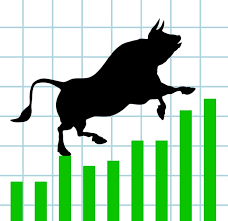Market Efficiency
What is Market Efficiency?
Market Efficiency is the degree to which the prices in the market reflect relevant and available information. If the markets are efficient, there will be no undervalued or overvalued securities available. This is because all the relevant information will be incorporated with the prices and there will be no avenue to beat the market. The term ‘market Efficiency’ comes from a paper written by Economist Eugene Fama in 1970. Mr Fama himself acknowledged that this particular term is misleading because no one has a clear definition of how to precisely measure market efficiency.

In simple words, the core of this term is the ability of the markets to incorporate information which gives the maximum amount of opportunities to buyers and sellers of securities to effect transactions without increasing the cost of a transaction.
Importance of Market Efficiency
Market efficiency has three degrees of importance. They are mentioned below:
1. Weak Form
The weak form of market efficiency refers to the price movements in the past which is not useful for the prediction of future prices. If all available, relevant information is incorporated into the current prices, then any relevant information that can be taken out from past prices will be incorporated into the current prices. This is why future price changes can only be the result of new information made available.
2. Semi-Strong Form
The semi-strong form of market efficiency refers to the assumption of stock adjusting fast to absorb new information from the public so that an investor can’t benefit over and above the market by trading on the new information. In other words, it means that both technical or fundamental analysis would not be dependable strategies to get big returns. This is because any information from the fundamental analysis will be available and thus already incorporated into current prices.
3. Strong Form
The strong form of market efficiency refers to the notion that market prices reflect all information incorporating the weak form and semi-strong form. According to this assumption, the stock prices reflect information and no investor would be able to gain profit above the average investor even if he or she were privy to Insider information.
Market Efficiency Example
Company XYZ is a public company and is listed on the National Stock Exchange (NSE). Company XYZ brings out a new product that is unique and much advanced than any other product available in the market. If the market that the company XYZ operates in is efficient, the new product will not affect the company’s share price.
Company XYZ hires workers from a labour market that is efficient. All employees are paid the exact amount that they contribute to the company. Company XYZ rents Capital from an efficient capital market. Therefore, the rental paid to owners of capital is exactly equal to the amount contributed by capital to the company. If the National Stock Exchange (NSE) is an efficient market, then the Company XYZ share prices reflect all information about the company. Therefore, NSE could predict that the company XYZ would release the new product. This is why the company’s share prices will not change.
Talk to our investment specialist
All efforts have been made to ensure the information provided here is accurate. However, no guarantees are made regarding correctness of data. Please verify with scheme information document before making any investment.












